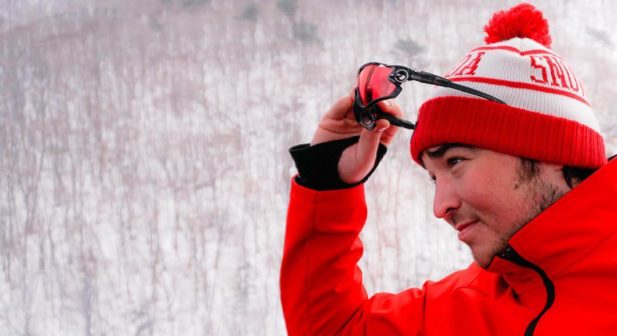The Importance of Recreation After a Serious Injury

Recreation is good for our bodies and souls. It has been said that people who cannot find time for recreation are obliged sooner or later to find time for illness. Whether it’s competitive sports, fishing, painting or even golfing poorly, recreation makes us feel good and enhances our sense of purpose.
For many people, one of the biggest losses after a serious injury is a loss of their leisure activities. If a sport or hobby is a big part of your life and it is suddenly taken away that is a major loss. It can feel like a big part of your life is gone.
Sports were a big part of Alex Massie’s life. He played rep hockey and high school football. He snowboarded and wake-boarded and enjoyed a variety of other sports. Then, when he was only 16, Alex lost a leg below the knee in a tragic wakesurfing incident. In hospital, Alex wondered whether he’d return to anything close to the active life that he enjoyed before his injury.
Alex worked hard in rehab only to fracture his knee a few days after being fitted for a prosthetic. He worked hard again to recover from this injury and master the use of his prosthetic leg. Alex had a goal. He “wanted to get back to being an athlete and doing sports that [he] loved.”
Alex was back on a wake surfboard only 11 months after he was injured. Only two years after he was injured, Alex returned to high school football as a starter on the offensive line. But Alex has found his greatest success on a snowboard. He has become not just a competitive snowboarder but an award-winning snowboarder at the international level. Alex has won medals at the Canadian Para-Snowboard Championships, the World Championships and the X-Games. Most recently, Alex represented Canada at the Pyeongchang Paralympics.
Having gone through the long, hard road of rehabilitation from a catastrophic injury, Alex has learned about the importance of returning to activities he loved. He feels that “getting back to what you are passionate about is a key part of recovery.” Not everyone is going to be a Paralympic athlete but Alex believes it is essential to “have something to get you out of bed and push you”.
Sue Verrilli is a Recreation Therapist in Sudbury. She echoes Alex’s advice. She believes that returning people to leisure activities that make them feel good is crucial to recovery from serious injury. The purpose of Recreation Therapy is to enable people to obtain quality of life and optimal health through meaningful participation in recreation and leisure. Ms. Verrilli believes that “every individual is different and the key is to find an activity, whether old or new, that gives them the same feeling they enjoyed in recreational pursuits before they were injured”. This can be anything from seated golf to modified skiing to anything in between.
A crucial part of our job as personal injury lawyers is to secure the funds needed for the most complete recovery possible. This includes obtaining funding for therapy and modified equipment to facilitate a return to sport or activity. We have learned from former clients like Alex and skilled therapists like Sue that returning to sports and recreation is a key goal in recovering from a serious injury.
This article first appeared in our Spring 2018 client newsletter and has been re-purposed for oatleyvigmond.com.
Written By

Troy Lehman joined Oatley Vigmond in 2006 and became a partner in 2010. As a personal injury lawyer, his greatest satisfaction comes from helping people through to the other side of a difficult time in their lives. “We’re here to help and relieve stress,” Troy says. “When I walk into a first meeting with a client, people are often scared and anxious. And for me, the best thing that can happen at the end of the meeting is that they say, ‘I feel so much better.’
